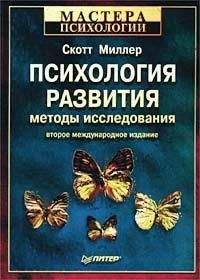Дуглас Кенрик - Рациональное животное. Как эволюция повлияла на развитие мозга

Скачивание начинается... Если скачивание не началось автоматически, пожалуйста нажмите на эту ссылку.
Жалоба
Напишите нам, и мы в срочном порядке примем меры.
Описание книги "Рациональное животное. Как эволюция повлияла на развитие мозга"
Описание и краткое содержание "Рациональное животное. Как эволюция повлияла на развитие мозга" читать бесплатно онлайн.
Почему миллиардеры столько работают, а потом бросают на ветер деньги, заработанные потом и кровью? Что общего между всеми нами и банкирами с Уолл-стрит, а также Элвисом Пресли и Стивом Джобсом?
В изящной и занимательной форме маэстро психологии Кенрик и Гришкевичус подвергают сомнению распространенные взгляды на процесс принятия решений и предлагают абсолютно новую альтернативу, основанную на эволюционной психологии. Устанавливая поразительную связь между поведением современного человека и его корнями, уходящими в прошлое, авторы показывают, что в основе «нелепых» поступков лежит чрезвычайно сложная система принятия решений.
Вкладывание денег, поиск работы, покупка машины, выбор спутника жизни — во всем этом за нашими решениями стоят скрытые эволюционные цели.
Эта замечательная книга полностью изменит ваше представление о процессе принятия решений.
147. Kenrick, D. T., F. Sanabria, J.M. Sundie, and P.R. Killeen. 2006. “When dilemmas disappear: How fitness interdependencies transform strategic games”. Unpublished manuscript.
148. Kenrick, D. T., J. M. Sundie, and R. Kurzban. 2008. “Cooperation and conflict between kith, kin,and strangers: Game theory by domains”. In C. Crawford & D. Krebs (Eds.), Foundations of Evolutionary Psychology: Ideas, Issues and Applications (pp. 371–382). Mahwah, New York: Erlbaum.
149. Kidd, C., H. Palmen, and R. N. Aslin. 2013. “Rational snacking: Young children’s decision-making on the marshmallow task is moderated by beliefs about environmental reliability”. Cognition: 126: 109–114.
150. Kirtzman, A. 2009. Betrayal: The life and lies of Bernie Madoff. New York: Harper Collins.
151. Klein, E. 2003. The Kennedy Curse. New York: St. Martin’s Press.
152. Klein, Jonathan. 2007. “Why do people really buy hybrids. The Topline Strategy Group”. http://www.cleanenergycouncil.org/files/Topline_ Strategy_Report_Why_People_Really_Buy_Hybrids.pdf
153. Knaup, A. 2005. “Survival and longevity in the Business Employment Dynamics data”. Monthly Labor Review, May, 2005, 50–56.
154. Kurzban, Robert. 2010. Why Everyone (Else) is a Hypocrite: Evolution and the Modular Mind. Princeton University Press.
155. Lakshminarayanan, V., M. K. Chen, and L.R. Santos. 2011. “The evolution of decision-making under risk: Framing effects in monkey risk preferences”. Journal of Experimental Social Psychology. 47 (3): 689-693
156. Lakshminaryanan, V., M. K. Chen, and L.R. Santos. 2008. “Endowment effect in capuchin monkeys (Cebus apella)”. Philosophical Transactions of the Royal Society B: Biological Sciences, 363. 3837–3844.
157. Larrick, R. P., K. A. Burson, and J.B. Soll. 2007. “Social comparison and confidence: When thinking you’re better than average predicts overconfidence (and when it does not)”. Organizational Behavior & Human Decision Processes. 102 (1): 76–94.
158. Levi, Maurice, Kai Li, and Feng Zhang. 2010. “Deal or No Deal: Hormones and Completion of Mergers and Acquisitions”. Management Science. 56:1462–1483.
159. Levitt, S., and S.J. Dubner. 2005. Freakonomics: A rogue economist explores the hidden side of everything. New York: William Morrow. (Издание на русском языке: Левитт С., Дабнер С. Суперфрикономика. — М.: Манн, Иванов и Фербер, 2010.)
160. Lewin, Alexandra C. (2007). Case Study #4-4, Zambia and Genetically Modified Food Aid / Per Pinstrup-Andersen and Fuzhi Cheng (editors), Food Policy for Developing Countries: Case Studies, 12 pp.
161. N.P. Li, J.M. Bailey, D.T. Kenrick, and J.A.W.Linsenmeier. 2002. “The necessities and luxuries of mate preferences: Testing the tradeoffs”. Journal of Personality and Social Psychology. 82: 947–955.
162. N.P. Li, and D.T. Kenrick. 2006. “Sex similarities and differences in preferences for short-term mates: What, whether, and why”. Journal of Personality & Social Psychology. 90: 468–489.
163. Li, Y. J., D.T. Kenrick, V. Griskevicius, and S.L. Neuberg. 2012. “Economic decision biases and fundamental motivations: How mating and self-protection alter loss aversion”. Journal of Personality and Social Psycholog. 102:550–561.
164. Liberman, V., S.M. Samuels, L. Ross, L. 2004. “The name of the game: Predictive power of reputations versus situational labels in determining prisoner’s dilemma game moves”. Personality and Social Psychology Bulletin. 30: 1175–1185.
165. Lino, M. 2010. “Expenditures on children by families”. 2009. (Miscellaneous Publication № 1528–2009). Retrieved from http://www.cnpp usda.gov/ Publications/CRC/crc2009.pdf.
166. Low, B. S., A. Hazel, N. Parker, and K.B.Welch. 2008. “Influences on women’s reproductive lives: Unexpected ecological underpinnings”. Cross Cultural Research, 42, 201–219.
167. Maner, J. K., C. N. DeWall, R. F. Baumeister, and M. Schaller. 2007. “Does social exclusion motivate interpersonal reconnection? Resolving the “porcupine problem”. Journal of Personality and Social Psychology. 92:42–55.
168. Maner, J. K., M.T. Gailliot, D.A. Rouby, and S.L. Miller. 2007. “Can’t take my eyes off you: Attentional adhesion to mates and rivals “. Journal of Personality and Social Psychology. 93: 389–401.
169. Maner, J. K., D. T. Kenrick, and D. V. Becker, A. W. Delton, B. Hofer, C. J. Wilbur, and S. L. Neuberg. 2003. “Sexually selective cognition: Beauty captures the mind of the beholder”. Journal of Personality and Social Psychology. 85: 1107–1120.
170. Maner, J. K., D. T. Kenrick, S.L. Neuberg, D.V. Becker, T. Robertson, B. Hofer, A. Delton, J Butner, and M. Schaller. 2005. “Functional projection: How fundamental social motives can bias interpersonal perception”. Journal of Personality and Social Psychology. 88: 63–78.
171. Maner, J. K., S. L. Miller, D.A. Rouby, and M.T. Gailliot. 2009. “Intrasexual Vigilance: The Implicit Cognition of Romantic Rivalry”. Journal of Personality and Social Psychology. 97: 74–87.
172. Marmot, M. 2004. Status Syndrome: How Your Social Standing Directly Affects Your Health and Life Expectancy. Bloomsbury, London.
173. Martin, K. Annika. “Why McDonalds pulled Frankenfries from menu” / CNN.com April 28, 2000 // http://archives.cnn.com/2000/US/04/28/ fries4_28.a.tm/index.html.
174. Mathews, T. J., B. E. Hamilton. (2009, August). “Delayed childbearing: More women are having their first child later in life”. NCHS Data Brief, 21. Retrieved from http://www.cdc.gov/nchs/data/databriefs/db21.pdf.
175. Mead, N. L., R. F. Baumeister, T. F. Stillman, C. D. Rawn, and K. D. Vohs. 2011. “Social exclusion causes people to spend and consume in the service of affiliation”. Journal of Consumer Research. 37: 902-919.
176. Mezrich, Ben. 2002. Bringing Down the House: The Inside Story of Six M.I.T. Students Who Took Vegas for Millions (New York: Free Press). Издание на русском языке: Мезрич Б. Удар по казино — М.: Вильямс, 2006.
177. Mill, J. S. (1874/1836). “On the definition of political economy, and on the method of investigation proper to it”. In Essays on Some Unsettled Questions of Political Economy, (2nd ed.) — London: Longmans, Green, Reader & Dyer. Originally published in London and Westminster Review, October 1836.
178. Miller, G. F., J. M. Tybur, annd B. D. Jordan. 2007. “Ovulatory cycle effects on tip earnings by lap-dancers: Economic evidence for human estrus?” Evolution and Human Behavior. 28: 375–381.
179. Miller, G. F. 2000. The Mating Mind: How Sexual Choice Shaped the Evolution of Human Nature. London, England: Heinemann.
180. Miller, G. F. 2009. Spent: Sex, Evolution and Consumer Behavior. New York, New York: Penguin/Putnam.
181. Miller, S. L., and J. K. Maner. 2010. “Scent of a woman: Male testosterone responses to female olfactory ovulation cues “. Psychological Science. 21:276–283.
182. Miller, S. L., and J. K. Maner. 2011. “Ovulation as a mating prime: Subtle signs of female fertility influence men’s mating cognition and behavior”. Journal of Personality and Social Psychology. 100: 295–308.
183. Miller, S. L., and J.K. Maner. 2011. “Sick body, vigilant mind: The biological immune system activates the behavioral immune system”. Psychological Science. 22: 1467–1471.
184. Mischel, Walter; Ebbe B. Ebbesen, and Antonette Raskoff Zeiss. 1972. “Cognitive and attentional mechanisms in delay of gratification”. Journal of Personality and Social Psychology. 21 (2): 204–218.
185. Moore, D. A., and P.J. Healy. 2008. “The trouble with overconfidence”. Psychological Review. 115(2): 502–517.
186. Mortensen, C. R., D. V. Becker, J. M. Ackerman, S. L. Neuberg, and D. T. Kenrick. 2010. “Infection breeds reticence: The effects of disease salience on self-perceptions of personality and behavioral avoidance tendencies”. Psychological Science. 21: 440–447.
187. Navarrete, C. D., D.M.T. Fessler, and S.J. Eng. 2007. “Elevated ethnocentrism in the first trimester of pregnancy”. Evolution and Human Behavior. 28 (1):60–65.
188. Nesse R. M. 2005. “Natural selection and the regulation of defenses: a signal detection analysis of the smoke detector principle”. Evolution and Human Behavior. 26: 88–105.
189. Nettle, D. 2010. “Dying young and living fast: Variation in life history across English neighborhoods”. Behavioral Ecology. 21: 387–395.
190. Neuberg, S. L., D. T. Kenrick, and M. Schaller. 2011. “Human Threat Management Systems: Self-Protection and Disease Avoidance”. Neuroscience & Biobehavioral Reviews. 35: 1042–1051.
191. Neuhoff, J. G. 1998. “A perceptual bias for rising tones”. Nature. 395 (6698):123–124.
192. Neuhoff, J. G. 2001. “An adaptive bias in the perception of looming auditory motion”. Ecological Psychology. 13 (2): 87–110.
193. Nicholson, Nigel. 2008. “Evolutionary Psychology and Family Business: A New Synthesis for Theory, Research, and Practice”. Family Business Review. 21: 103–118.
194. Nisbett, R., and T. Wilson. 1977. “Telling More than we can Know: Verbal reports on mental processes”. Psychological Review. 84: 231–259.
195. Null, G., M. Feldman, D. Rasio, and C. Dean. 2011. Death by medicine. Edinburg Va: Axios press.
196. O’Toole, James. 2012. “Consumer reports slams Fisker Karma”. CNN. September 25 // http://money.cnn.com/2012/09/25/autos/fisker-karma- consumer-reports/index.html.
197. Ohman, A. and S. Mineka. 2001. “Fears, phobias, and preparedness. Toward an evolved module of fear and fear learning”. Psychological Review. 108:483–522.
198. Palmer, C. T. 1993. “Anger, Aggression, and Humor in Newfoundland Floor Hockey — an Evolutionary Analysis”. Aggressive Behavior. 19: 167–173.
199. Pinker, S. 2011. The better angels of our nature: The decline of violence in history and its causes. London: Penguin Books.
200. Rajamaran, I. 1983. “Economics of Bride-Price and Dowry”. Economic and Political Weekly 18, 275–279.
201. Rajecki, D. W., S.B. Bledsoe, and J.L. Rasmussen. 1991. “Successful personal ads: Gender differences and similarities in offers, stipulations, and outcomes”. Basic and Applied Social Psychology 12: 457–469.
202. Randeria, S., and L.Visaria. 1984. “Sociology of bride-price and dowry”.
Economic and Political Weekly 15: 648–652.
203. Rapaport, A., and A.M. Chammah. 1965. Prisoner’s dilemma. Ann Arbor: University of Michigan Press.
204. Roff, D. A. 2002. Life History Evolution. Sunderland: Sinauer.
205. Ronay, R., and W. von Hippel. 2010. “The presence of an attractive woman elevates testosterone and physical risk-taking in young men”. Social Psychological and Personality Scienc, 1: 57–64.
206. Roney, James R. 2003. “Effects of Visual Exposure to the Opposite Sex: Cognitive Aspects of Mate Attraction in Human Males”. Personality and Social Psychology Bulletin 29 (3): 393–404.
207. Rosenblum, L. A., C. Forger, S. Noland, R.C. Trost, and J.D. Copland. 2001. “Response of adolescent bonnet macaques to an acute fear stimulus as a function of early rearing conditions”. Developmental Psychobiology 39: 40–45.
208. Rucker, D. D., A.D. Galinsky, and D. Dubois. 2012. “Power and consumer behavior: How power shapes who and what consumers value”. Journal of Consumer Psychology 22: 352–368.
209. Russell, B. 1950. Unpopular Essays. London: George Allen and Unwin.
210. Russia. 2008. “The golden Porsche”. English Russia, July 4, http://englishRussia.com/2008/07/04/the-golden-porsche.
211. Saad, G. 2007. The evolutionary bases of consumption. Mahwah, NJ: Lawrence Erlbaum Associates Publishers.
212. Saad, G. 2011. The Consuming Instinct. Amherst, NY: Prometheus Books.
213. Saad, G. and J.G. Vongas. 2009. “The effect of conspicuous consumption on men’s testosterone levels”. Organizational Behavior and Human Decision Processes 110: 80–92.
214. Sagarin, B. J. 2005. “Reconsidering evolved sex differences in jealousy: Comment on Harris (2003)”. Personality and Social Psychology Review 9:62–75.
215. Sapolsky, R. M. 2002. A primate’s memoir: A neuroscientist’s unconventional life among the baboons. New York: Scribner.
216. Schaller, M., and L.A. Duncan. 2007. “The behavioral immune system: Its evolution and social psychological implications”. In J. P. Forgas, M. G. Haselton, & W. von Hippel (Eds.), Evolution and the social mind: Evolutionary psychology and social cognition (pp. 293–307) — New York: Psychology Press.
217. Schaller, M., and D. R. Murray. 2008. “Pathogens, personality and culture: Disease prevalence predicts worldwide variability in sociosexuality, extraversion, and openness to experience”. Journal of Personality and Social Psychology 95: 212–221.
218. Schaller, M., and J. H. Park. 2011. “The behavioral immune system (and why it matters)”. Current Directions in Psychological Science 20: 99–103.
219. Schaller, M., G. E. Miller, W. M. Gervais, S. Yager, and E. Chen. 2010. “Mere visual perception of other people’s’ disease symptoms facilitates a more aggressive immune response”. Psychological Science 21: 649–652.
220. Schaller, M., J. H. Park, and A. Mueller. 2003. “Fear of the dark: Interactive effects of beliefs about danger and ambient darkness on ethnic stereotypes”. Personality and Social Psychology Bulletin 29: 637–649.
221. Schmitt, D. P. 2005. “Sociosexuality from Argentina to Zimbabwe: A 48-nation study of sex, culture, and strategies of human mating”. Behavioral & Brain Sciences 28: 247–311.
222. Schmitt, D., et al. 2003. “Universal sex differences in the desire for sexual variety: Tests from 52 nations, 6 continents, and 13 islands”. Journal of Personality and Social Psychology 85: 85–104.
Подписывайтесь на наши страницы в социальных сетях.
Будьте в курсе последних книжных новинок, комментируйте, обсуждайте. Мы ждём Вас!
Похожие книги на "Рациональное животное. Как эволюция повлияла на развитие мозга"
Книги похожие на "Рациональное животное. Как эволюция повлияла на развитие мозга" читать онлайн или скачать бесплатно полные версии.
Мы рекомендуем Вам зарегистрироваться либо войти на сайт под своим именем.
Отзывы о "Дуглас Кенрик - Рациональное животное. Как эволюция повлияла на развитие мозга"
Отзывы читателей о книге "Рациональное животное. Как эволюция повлияла на развитие мозга", комментарии и мнения людей о произведении.

























